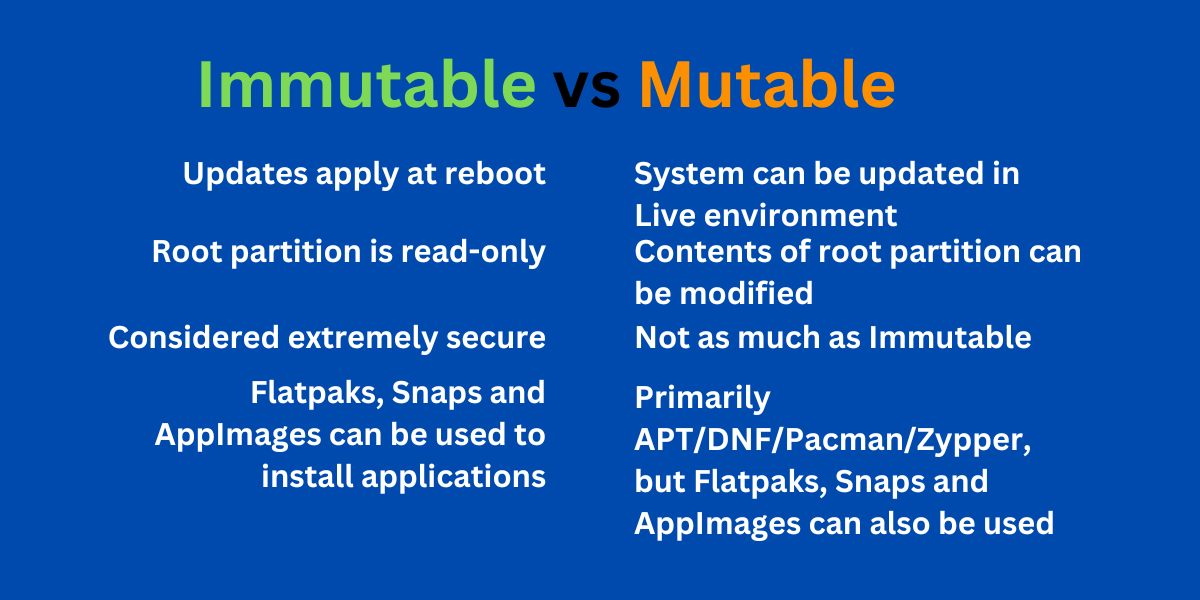this post was submitted on 13 Jan 2025
362 points (93.9% liked)
Linux
49069 readers
347 users here now
From Wikipedia, the free encyclopedia
Linux is a family of open source Unix-like operating systems based on the Linux kernel, an operating system kernel first released on September 17, 1991 by Linus Torvalds. Linux is typically packaged in a Linux distribution (or distro for short).
Distributions include the Linux kernel and supporting system software and libraries, many of which are provided by the GNU Project. Many Linux distributions use the word "Linux" in their name, but the Free Software Foundation uses the name GNU/Linux to emphasize the importance of GNU software, causing some controversy.
Rules
- Posts must be relevant to operating systems running the Linux kernel. GNU/Linux or otherwise.
- No misinformation
- No NSFW content
- No hate speech, bigotry, etc
Related Communities
Community icon by Alpár-Etele Méder, licensed under CC BY 3.0
founded 5 years ago
MODERATORS
you are viewing a single comment's thread
view the rest of the comments
view the rest of the comments

I don't think the point of Linux is to tinker. That would kinda make it for tinkerers only. In my view, the point of Linux is that its a kernel only and you can use it to build an OS around and build one which is easy to tinker with or one which isn't. Point is, not every system is suited for every task and the Linux kernel allows you to use it how you wish (via distros or you can make your own system around it). Why the gatekeeping?
It is, it's your machine, it's YOURS to tinker to your needs
Or yours to not tinker and just use distros default. Right?
Umm sure, mutable ones give you the freedom
How does immitable differ in this case?
Cuz it's immutable
When I just want it to work for my needs (i.e. using just web browser for most people) there's no difference. Except immutable is less prone to go wrong.